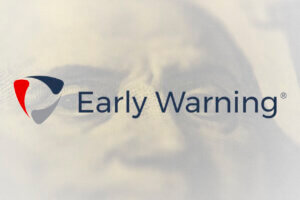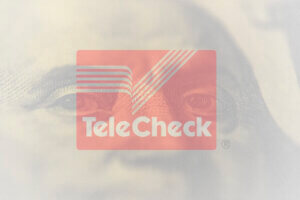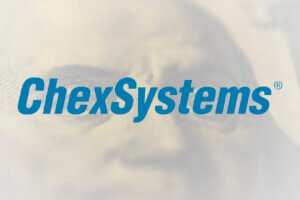What Is Early Warning Services?
Early Warning Services (Early Warning®) is a consumer reporting agency that provides data and tools to over 2,500 US banks and financial institutions, which helps them detect fraud, assess risk, and verify identities.
This ultimately translates to better-informed decisions that benefit both institutions and consumers.
Additionally, Early Warning® manages the widely-used Zelle® network, a secure platform facilitating peer-to-peer payments.
What Are Consumer Reporting Agencies (CRAs)?
Consumer Reporting Agencies (CRAs) help banks and credit unions assess creditworthiness for approving accounts, granting loans, or accepting checks. The following are the main CRAs in the US.
CRAs that specialize in check verification:
- TeleCheck
- Certegy Check Services
- Shared Check Authorization Network (SCAN)
CRAs that specialize in checking and savings account history:
- ChexSystems, Inc.
- Early Warning Services (EWS)
- Cross Check
CRAs that specialize in credit history (credit bureaus):
- Experian
- Equifax
- TransUnion
What Does Early Warning Services Do?
Early Warning Services helps financial institutions like banks and credit unions fight fraud in real-time with check validation, account opening checks, and transaction risk assessment.
>> Read up on Credit Unions vs. Banks
They also provide banks with tools to assess individual risks for informed lending and credit decisions, verify identities with advanced algorithms, facilitate secure payments through Zelle®, and provide data and analytics for improved efficiency and targeted services.
Note: Early Warning Services is a consumer reporting agency that tracks banking history, which differs from a credit reporting agency (like Experian, Equifax, and TransUnion) that tracks credit history.
How Does Early Warning Services Work?
Early Warning Services (EWS) functions mainly as a consumer reporting company. They collect data on consumers based on their banking activity.
This data is then analyzed by advanced algorithms and machine learning models to identify patterns. This analysis helps detect fraudulent activity, assess risk associated with individual accounts and transactions, and verify identities.
What Information Does Early Warning Collect?
Early Warning reports include details about your bank accounts, including number, balance, and history. They also delve into personal information like your address, Social Security number, and identity verification data such as driver’s license details.
These reports also track transaction information (such as date, amount, merchant, and location) and list institutions that have accessed your data.
What Products Does Early Warning Offer?
Early Warning platform offers a suite of eight products designed to assist financial institutions with advanced capabilities and improved decision-making. These products include:
- ‘Verify Identity’: Real-time synthetic identity fraud detection solution.
- ‘Predict New Account Risk’: Advanced risk assessment for informed new account decisions.
- ‘Expand Credit Insights’: Utilizes deposit data to expand credit offerings to those with limited credit history.
- ‘Verify Deposit’: Improves funds availability decision-making while minimizing fraud risk.
- ‘Verify Payment’: Real-time account status and risk assessment for accurate transactions.
- ‘Verify Account’: Validates user-provided accounts for fraud and scam prevention.
- ‘Detect Identity Activity’: Provides diverse alerts for enhanced identity theft protection.
- ‘Determine Assets & Eligibility’: Assists government programs with secure asset verification.
These products use modern technology and scoring models to provide financial entities with a comprehensive suite of solutions for improved risk management and fraud prevention through high-risk transaction alerts, confidence scores, and synthetic indicators.
Does Early Warning Services Impact Credit Scores?
No, Early Warning Services does not affect your credit score. It provides information about your banking history, not your credit history, and does not report information to credit bureaus. They focus on detecting fraudulent activities rather than assessing creditworthiness and generating credit scores.
You can even request a free copy of your consumer report from them annually without impacting your credit score.
>> Read up on 10 Ways to Improve Credit Score
History of Early Warning Services
Early Warning Services (EWS) has served the US financial industry since the 1990s. Initially focused on managing deposit risks and validating checks, EWS has evolved to include identity risk management, authentication, and P2P payments.
Key milestones include launching new fraud detection solutions, becoming fully bank-owned, expanding services to real-time check deposit and account opening, and revolutionizing P2P money transfers with Zelle Network®. EWS continues to enhance its mobile offerings and user experiences.
Their latest consumer product offering is Paze, a new digital wallet from Early Warning® offered by participating banks and credit unions.
It lets you pay securely online without sharing your actual card numbers, thanks to a unique code used at checkout. Paze offers convenience and ease of use by seamlessly integrating with existing merchant checkout processes.
Which Banks Own Early Warning Services?
Early Warning Services is currently co-owned by seven of the largest banks in the United States: Bank of America, Capital One, JPMorgan Chase Bank, PNC Bank, Truist, U.S. Bank, and Wells Fargo.
Early Warning, a custodian of the National Shared Database, contains a vast collection of deposit performance data from over 2,500 financial institutions, including the banks listed above.
These banks collaborate to leverage Early Warning’s services to enhance their own fraud detection and risk management capabilities, ultimately benefiting their customers.
What is an Early Warning Services report, and how to use it?
Early Warning Services report, or your ‘file disclosure,’ is a complete copy of your file held by the consumer reporting agency (CRA). It includes all the banking-related information the CRA has collected about you.
The Fair Credit Reporting Act (FCRA) allows one to request your file disclosure from Early Warning Services for free. You will need to provide sufficient information to verify your identity, including your Social Security number.
The use of an Early Warning report is that you can review it to identify and dispute any errors that may be impacting your financial well-being, such as preventing you from opening a bank account.
What Can You Expect To See on Your EWS Disclosure File?
Your Early Warning Services report contains four main sections:
- Information You Provided: This section lists the details you provided to Early Warning to generate your report.
- Closed Bank Accounts: This section details information about any closed bank accounts associated with you.
- Bank Account Transactions: This section provides information about transactions linked to your bank account(s).
- Information Access: This section lists the entities that have accessed your information within the last 36 months.
How Do You Request Your EWS File Disclosure?
You can request to receive your EWS file disclosure by email or mail. The following are the details you need to provide the consumer reporting agency:
- Social Security number
- Full name (including middle and suffix)
- Current and previous addresses
- Date of birth
- Primary and alternate phone numbers
- Copy of government-issued ID (driver’s license or passport)
You can submit information via their secure transfer portal. Visit this webpage, enter consumerservices@earlywarning.com as the email address, and follow the instructions to generate your new User ID and password. Once done, upload the necessary documents to Early Warning.
You can also reach out to them by the following means:
- Mail: 5801 N. Pima Rd, Scottsdale, AZ 85250
- Fax: 480-656-6850
- Over-the-phone: 1-800-745-1560 (Monday-Friday, 8 am-5 pm MST)
Is EWS File Disclosure Different From a Credit Report?
Yes, both are vastly different. Early Warning Services (a consumer reporting agency) generates file disclosures that are different from credit reports obtained from services like Equifax and TransUnion (credit reporting agencies)
While credit reports solely focus on your credit history, Early Warning Services consumer files specialize in your banking history.
This means they detail information about your bank accounts, such as account types, balances, and transaction history, rather than your creditworthiness.
>> Read up on How To Delete Negative Items from Credit Reports
Denied a Bank Account Based on Your EWS File? Here’s What To Do.
If you’ve been denied a bank account due to your Early Warning Services report, you have two options:
- Consider second chance banking
- Remove negative items from your EWS file
Certain banks offer ‘second chance accounts’ for people with a not-so-perfect banking history by looking past any negative entries in their consumer reports from agencies like EWS and ChexSystems. This helps people access basic financial services despite a bad record.
>> Learn more: Best Second Chance Checking Accounts
If it is a regular bank account you want, then consider clearing any negative entries from your Early Warning consumer file.
Review the report for inaccuracies, errors, or signs of identity theft. If you find anything, exercise the right to dispute it so you can get it removed or modified.
How Do You Dispute the Information in Your Early Warning Report?
You can dispute inaccuracies in your disclosure file by sending them a dispute in writing. Early Warning offers no-cost investigation for disputed information.
There are three ways to send your dispute to Early Warning:
- By the secure transfer portal:
Visit consumerservices.earlywarning.com and use consumerservices@earlywarning.com when prompted for an email. Follow the instructions to create a new User ID and password if you haven’t already, and upload the dispute documents. Call 1-877-639-4457 if you need technical support.
- By fax:
480-656-6850
- By mail:
Early Warning
Attn: Consumer Services
5801 N Pima Road
Scottsdale, Arizona 85250
Early Warning will forward your written dispute to the relevant financial institution for reinvestigation.
Your written dispute must include the following:
- Your Consumer ID Number
- A detailed description of the specific information you’re disputing, including any relevant account numbers or reference numbers
- A clear explanation of why the information is inaccurate or incomplete
- A separate, signed paper for each disputed item
- Copies of all supporting documentation attached to each dispute
How long does the dispute process take?
The Fair Credit Reporting Act (FCRA) allows Early Warning up to 30 days to resolve disputes, though most disputes are completed much faster.
What happens after your dispute is submitted?
Following the completion of your dispute, your Early Warning consumer report will be updated based on the outcome. The disputed information may be removed, corrected, or remain unchanged. You can expect written notification of the outcome within five business days of the dispute’s completion.
Conclusion
In conclusion, Early Warning Services safeguards the US financial system through advanced tools for banks and financial institutions. From online fraud detection to identity verification, their services benefit consumers by ensuring secure transactions and fostering trust.
Early Warning also empowers consumers with transparency and control through free reports and a dispute resolution process, through which you can improve and protect your financial well-being.







